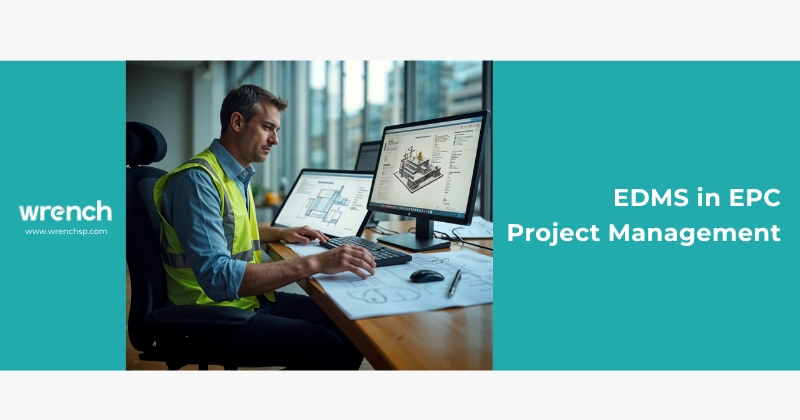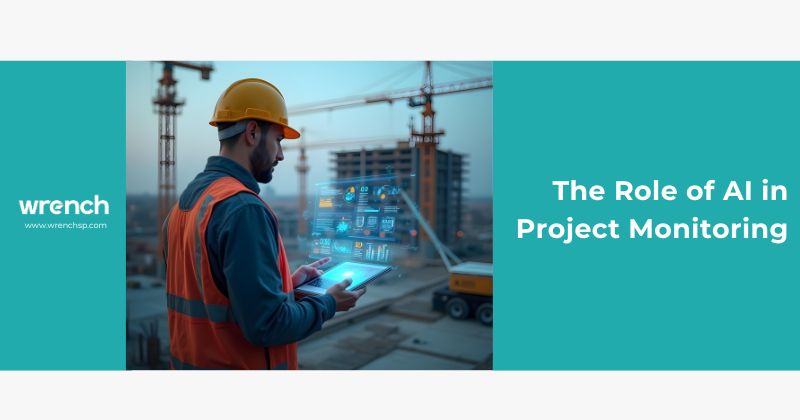- Blog
- 25 Aug 2019
AACEI’s TCM vs PMI’s PMBOK

One of the things that drew me to WRENCH was its insistence on standardization. As someone who has long been immersed in PMI and AACE (the top two industry-wide standards of our time), I was delighted to meet someone who shared my view, namely, that standardization is perhaps the most overlooked yet most critical success factor in modern project management.
Daniel and I have had many long and impassioned conversations about why this is the case, whether it stems from a genuine lack of awareness on the industry’s part, or just its failure to prioritise. But now, I have hope that every EPC company will wake up and standardize its processes (in order to meet quality requirements), its departments (in order to ensure accuracy in every deliverable) and its stakeholders (in order to make sure everybody is on the same page). But how would they go about it?
Let’s say a company somehow gets convinced that it would be a good thing to ‘standardize’. What’s the next step? Most companies are likely to look into PMI, which is well-known (even if not fully understood), and some might even look into AACE, out of curiousity if nothing else. And that’s where the confusion starts. “Should we go for PMI’s PMBOK or AACE’s TCM?” How are they different? Do they complement/supplement each other?
Daniel has already written an excellent post on this, which aptly sums up the role of the two within an organisation. You can read ithere. Following from his post I will add my thoughts from the academic side.
Architecture refers ‘carefully designed structure of something’, and here it is about the Total Cost Management (TCM) framework. As the name suggests, the focus of TCM framework is cost management of projects and the deliverable of projects (assets). There lies the fundamental difference between the Project Management Body of Knowledge (PMBOK) by PMI, USA and the TCM framework. PMBOK focuses on the entire gamut of project management whereas the focus of TCM is on total cost management of the project, and the product of the project which is known as the ‘asset’ in TCM jargon.

The PDCA cycle (Plan, Do, Check, Act) by Deming is the underlying theme of management. Whatever we intend to do must be planned first. Then the plan is executed. The progress is checked periodically. Actions are taken if there is a variance. The underlying theme of TCM is also PDCA (recursive PDCA cycles).
Strategic asset management process group
- Asset planning (Plan)
- Project implementation (Do)
- Performance measurement (Check)
- Performance assessment (Act)
Project control process group – Planning
- Project control planning (Plan)
- Project control plan implementation (Do)
- Project control measurement (Check)
- Project control performance assessment (Act)
Enabling process
- The enterprise in society
- People and performance management
- Information management
- Quality management
- Value management
- Environment, health and safety
All these processes ‘refers to’ and ‘add to’ the organizational knowledge repository and tool base.
The PMBOK (Project management body of knowledge)
The PMBOK comprises of 49 processes grouped into a two-dimensional array of five process groups and 10 knowledge areas.
Five process groups
- Initiation
- Planning
- Execution
- Monitoring & Controlling
- Closing
Ten knowledge areas
- Integration management
- Scope management
- Time management
- Cost management
- Quality management
- Communications management
- Resource management
- Risk management
- Procurement management
- Stakeholder management
Each process comprises of a set of inputs, tools and techniques and outputs.
This is a brief summary of some of the key points of the two frameworks, obviously there is a great deal more, which I will be exploring in the future. But I hope this is a starting point for anyone wondering about PMBOK and TCM and their role in an EPC organisation.
See you soon!
Expert in agile, predictive and hybrid project management. Researches on the application of Artificial Intelligence for better project outcomes. Works as a domain expert at Wrench Academy, the knowledge management division of Wrench Solutions, the makers of Smart Project Digital PMO.
Related Posts

What is an EDMS?
EDMS has become popular in the EPC world in the last decade, especially after the pandemic. What is EDMS? At its core, EDMS is an electronic document management system or a software that organises and…
- 20 Mar 2025

The Role of AI in Project Monitoring
As AI continues to make inroads into every industry in the world and the buzz around it continues to grow, we’re seeing EPC organisations leave behind their historical hesitation about emerging technologies; in fact we’re…
- 13 Mar 2025
Archives
- March 2025
- February 2025
- January 2025
- November 2024
- October 2024
- September 2024
- August 2024
- July 2024
- June 2024
- May 2024
- April 2024
- March 2024
- January 2024
- December 2023
- November 2023
- September 2023
- August 2023
- July 2023
- June 2023
- May 2023
- April 2023
- March 2023
- February 2023
- January 2023
- December 2022
- November 2022
- September 2022
- June 2022
- May 2022
- April 2022
- March 2022
- January 2022
- November 2021
- October 2021
- July 2021
- June 2021
- May 2021
- March 2021
- February 2021
- January 2021
- December 2020
- November 2020
- September 2020
- August 2020
- June 2020
- April 2020
- March 2020
- February 2020
- January 2020
- November 2019
- October 2019
- September 2019
- August 2019
- April 2019
- March 2019
- December 2018
- October 2018
- September 2018
- August 2018
- July 2018
- June 2018
- May 2018
- April 2018
- January 2018
- November 2017
- October 2017
- September 2017
- May 2017
- April 2017
- March 2017
- February 2017
- January 2017
